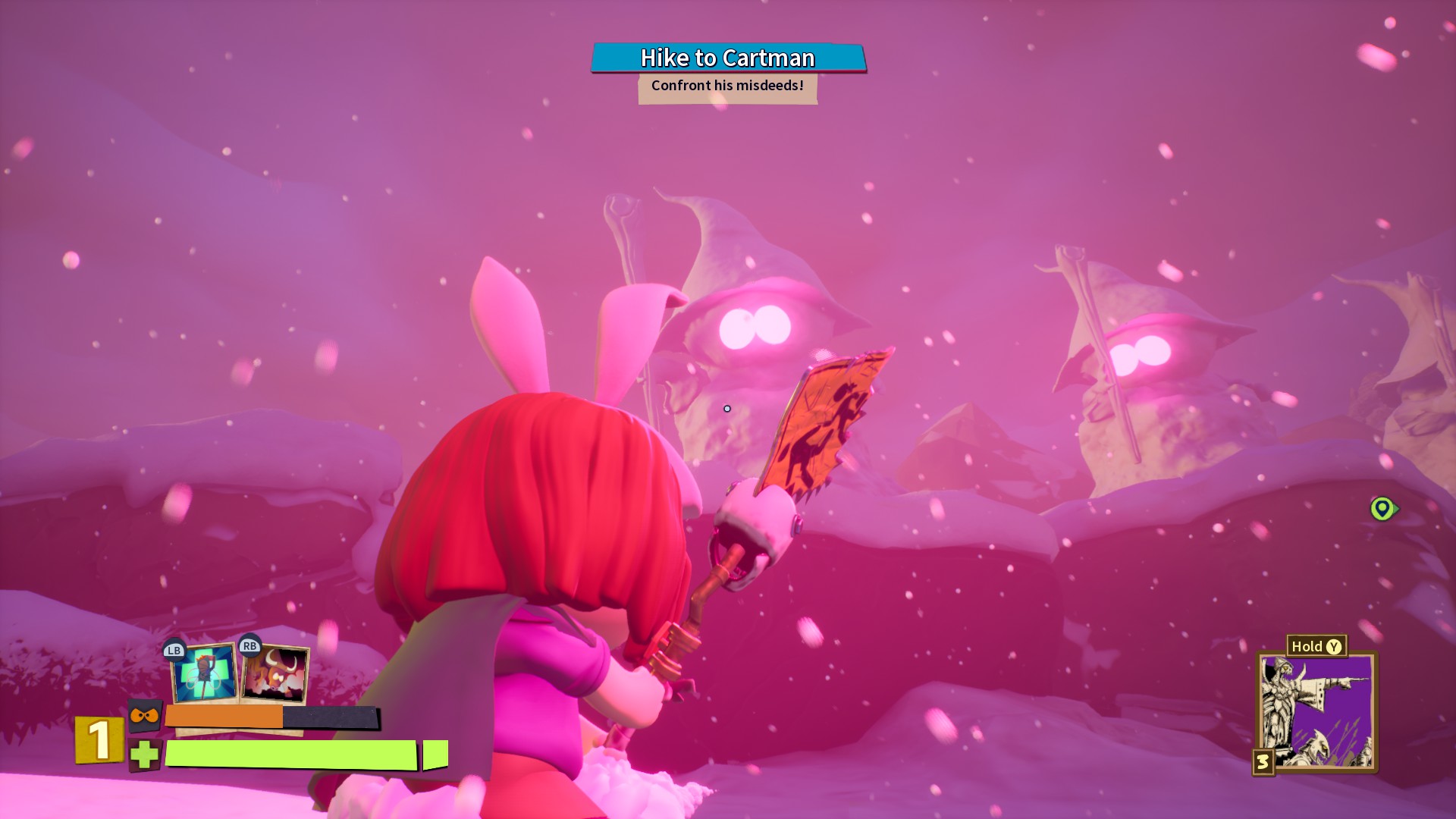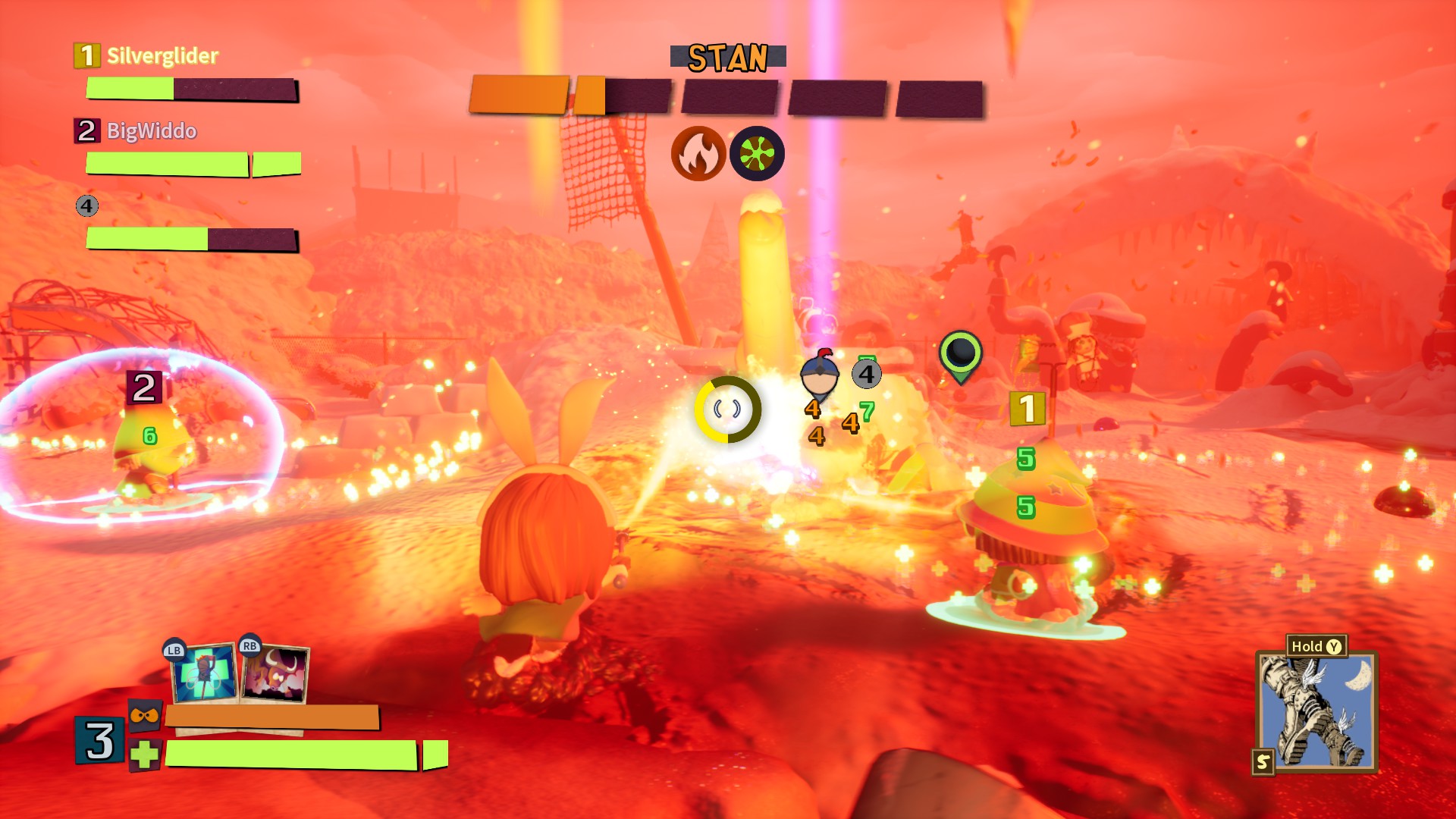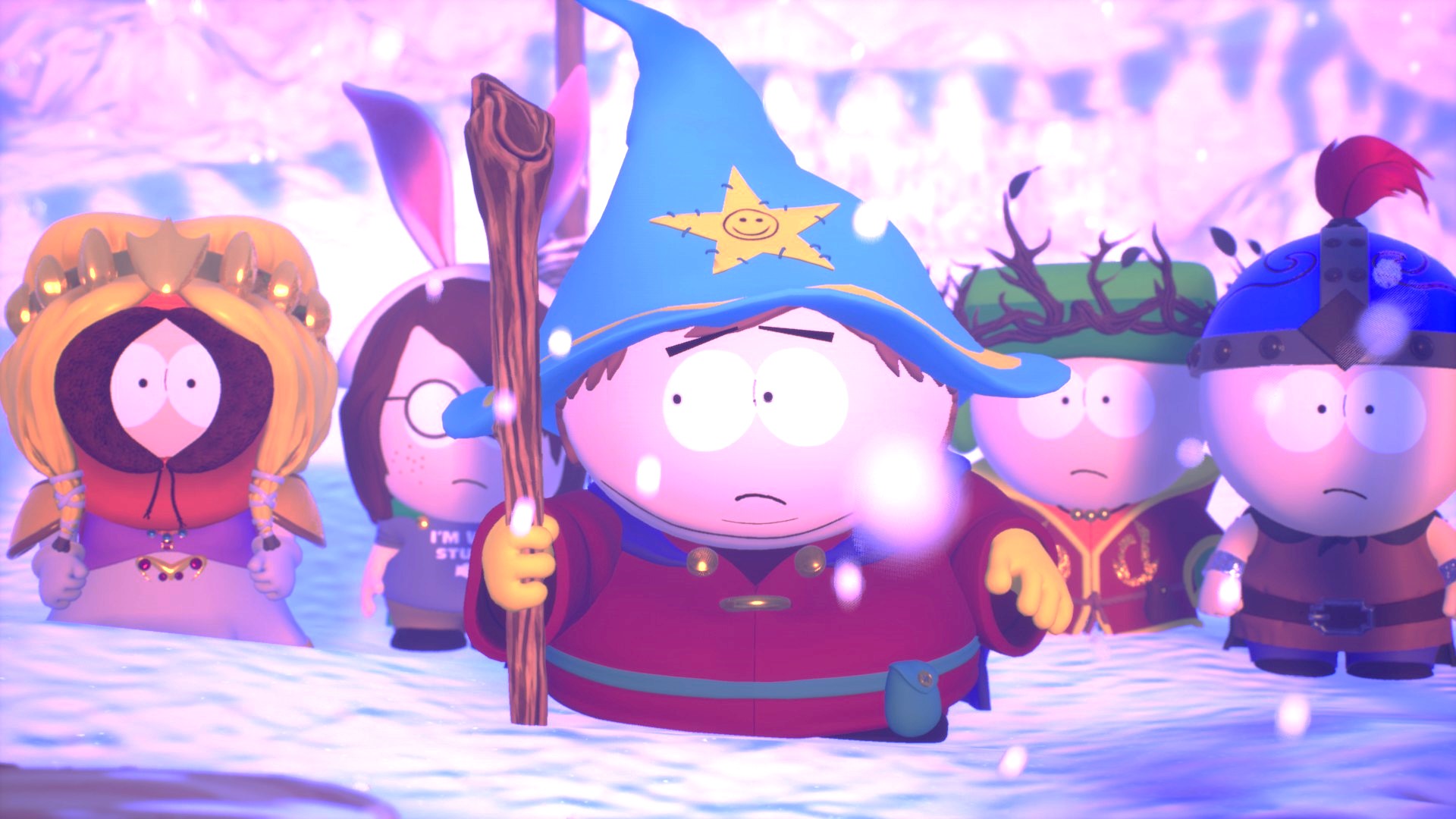Our Verdict
A charming but slight co-op action game where a basic combat system is elevated by clever bonuses and abilities, and half the pleasure is the world's incidental details.
PC Gamer's got your back
What is it? A wave-based co-op action game where the South Park kids savage each other.
Expect to pay $30/£25
Developer Question
Publisher THQ Nordic
Reviewed on GeForce GTX 1070, 16GB RAM, i7-7700HQ
Multiplayer? 4 player online co-op
Link Official website
South Park: Snow Day is a curious game, one that in light of the series' more ambitious RPG offerings comes off like a side entry. The town of South Park is struck by a serious snow day, communicated brilliantly with a cartoon opening in which you see residents frozen to death and tankers crashing into the ice while Cartman prays school is cancelled. When school is indeed closed you, as the new kid (the same canonical new kid from Stick of Truth and Fractured But Whole) are roped into Cartman and Kyle's ongoing fantasy war between loosely-themed wizards and elves.
There's a lot to enjoy in how Snow Day sets the scene, with one especially good early clip seeing Cartman berate players who discovered overpowered tricks in previous South Park games, liberally dispensing blame while vowing this time it will be different. Snow Day then slowly introduces its core elements: this is a wave-based, co-op third-person action game. Interestingly, Snow Day is equal parts melee and ranged, a flexible setup that sees you relentlessly shank, burn, and crush cute little elves (to begin with) while fulfilling objectives in various South Park-y environments.
Card sharks

Snow Day's combat basics are rudimentary: a melee combo and charge attack, alongside one of four ranged weapons (one tosses fireballs in lazy arcs, another burns enemies with a direct beam, and so on). It's satisfying enough barreling through groups of enemies with a giant axe spin attack, and Snow Day mixes things up with two abilities you set at the start of a match (I've been using a healing totem and a charge attack). But what really elevates the combat is a deck of genuinely imaginative power-up cards.
Card power-ups take various forms, with each faction for a particular level drafting a hand at a pow-wow before the match begins, and others found in the levels or bought from Butters and other side characters during the match. The basic power-up cards boost your weapon's capabilities—the sword and shield can be upgraded to block attacks from all angles, the daggers can lean into vampiric qualities, and the axe spin can be upgraded into a ludicrous death vortex.
Atop this, your ranged abilities can be buffed too, and each level is about choosing what you'll upgrade on this particular run. God-tier axe or a wand that arcs electricity around enemies and eventually leaves fire everywhere to boot? Each weapon upgrade card also has its own tiers to go through, paid for by the toilet paper you collect on each run, atop which the character Henrietta can be found offering 'dark' cards that offer huge power for sacrifices in other areas (or, sometimes, just a bunch of currency).
Finally there are the "Bullshit" cards, and these are the potential match-swingers. Each side has one Bullshit card, which can have 2-5 uses per match depending on type, and as the name suggests, they're ludicrously overpowered temporary advantages. The best thing about them? When played the action slows down and an announcer's voice booms "BULLLSHIIIIT" as the advantage is conferred.
So one Bullshit card will suddenly bring all dead enemies back to life, which is usually rather a problem because you're now surrounded by pissed off elves with no clear escape route. But you have an obvious counter: a Bullshit card that summons your own army of minions. The Bullshit cards are slightly different for attackers and defenders, so one will turn you into a giant while the enemy gets two, and so on. One of them just straight-up lets you shoot laser death beams from your eyes.
Bullshit cards are welcome opportunities to cut loose or turn around a losing situation, but they also give Snow Day a sense of escalation as you obtain better and better cards, judge when to trigger the big Bullshit moments, and deal with whatever the increasingly desperate opponent's throwing at you. The latter stages of any given Snow Day level are the best, as screaming piles of enemies crash into maniacal child assassins under a withering hail of bouncing fireballs, lava everywhere, someone spinning around with an axe, and death rays blasting everywhere while each side's desperately trying to get some Bullshit working.

Slow Day
But getting there is sometimes more of a slog than it should be. Snow Day layers its cards and levelling system atop a pretty basic foundation, and at times I was mindlessly hacking away at the hordes without having much sense of a good time. The environments are relatively small with guide markers to objectives and, while they do have secrets squirrelled-away, the rewards are often so slight I wonder why I'm bothering.
On top of that, Snow Day can at seemingly random points be brutally unforgiving. The Bullshit cards are fun, sure, but can also end a run almost instantly in certain circumstances: In one of my matches the resurrection card was used when the team was scattered across the map, and all four of us were overwhelmed and went down one-by-one in isolated spots with no chance of revival. On the one hand, great, and it was certainly a surprise. On the other, this was the fifth stage of five and sent us right back to the level's start. A bit too much Bullshit.
Snow Day is a relatively short game (you could probably blast through it in an evening), and I'm not sure there's enough meat on the bones to have you returning to its five stages. That may well be a plus for some, but the sight of various DLCs and a season pass being sold at launch leaves a bad taste in the mouth, and suggests THQ Nordic is overestimating this game's long-term appeal and not packing as much into the launch game as it should have.
It does deliver on the licence, and by far the most charming element of Snow Day are the various South Park characters scattered around the environments and their incidental dialogue. There's a whole bunch of toilet humor, of course, but other jokes that caught me off guard and made me smile: probably the best element is the running commentary from Cartman and the other kids, depending on the level, where they constantly pick up your over-reliance on defending, or that player 1 has been downed a lot in this match. There are even a few great running gags, like the town's main currency in this lockdown being toilet paper.
But in the end it's a little unsatisfying: This is not a game that over-delivers with levels and modes. It has a simple and fun combat system that just about bears the repetition, and good upgrade paths, but without the depth or emergent possibilities to encourage repeated experimenting. At its best it can be camaraderie against chaos, the kind of backs-to-the-wall gauntlet we all love in a good horde mode, but all-too-often it middles along somewhere below that, even lapsing into being trivially easy and little more than a collectathon for sizeable stretches.
All of which leads to the almost inevitable massive cop-out: if you like South Park, and have a few buddies who do too, then Snow Day delivers just about enough to while away a few fun evenings in these characters' company. But there are much better co-op experiences out there and, to be honest, much better South Park videogames too. Snow Day is fun enough for a little while but, just like the real thing, the novelty soon wears off.
A charming but slight co-op action game where a basic combat system is elevated by clever bonuses and abilities, and half the pleasure is the world's incidental details.

Rich is a games journalist with 15 years' experience, beginning his career on Edge magazine before working for a wide range of outlets, including Ars Technica, Eurogamer, GamesRadar+, Gamespot, the Guardian, IGN, the New Statesman, Polygon, and Vice. He was the editor of Kotaku UK, the UK arm of Kotaku, for three years before joining PC Gamer. He is the author of a Brief History of Video Games, a full history of the medium, which the Midwest Book Review described as "[a] must-read for serious minded game historians and curious video game connoisseurs alike."


